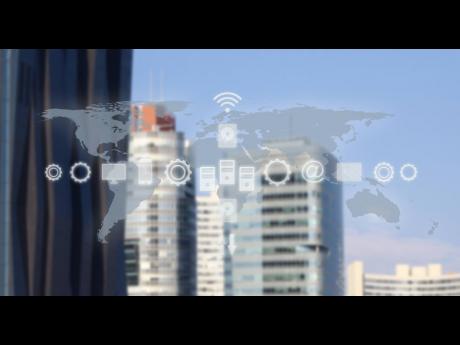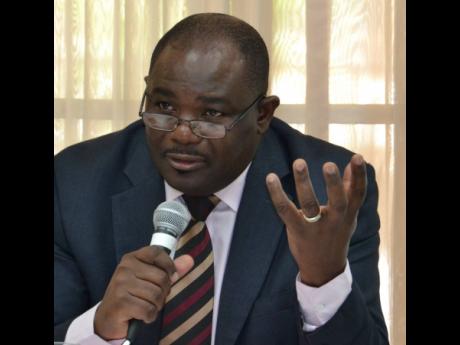Cordel Green | Smart cities through the lens of human rights – technological and ethical dilemmas
The operating systems of society are undergoing profound transformation, including a fast-approaching future when computer chips will be near zero in cost and connected sensor devices will be widely deployed, fuelling exponential ‘datafication’ and the Internet of all things. Another feature of the changed society is that, even quicker than governments, technology companies are able to know our age, our diseases, our political and religious views, sexual orientation and proclivities, family, friends, associates, enemies, consumption habits – designed to benefit advertising-driven business models.
This is the background against which we are to contemplate what it means to be a smart city. The response is a matter of perspective. The techno-rational concept which I have just described comes at a huge economic cost, estimated to be in the region of $1.6 trillion. This is a dehumanising and illusive universe for the vast majority of cities which cannot afford to provide even basic services much more the acquisition cost and recurring expenditure required for smart city infrastructure. This portends perpetuation and widening of the global digital divide which separates people and communities on the basis of historical inequities.
INEVITABLE
Is this inevitable or are we capable of a design which privileges humanitarian concerns over technological determinism and transatlantic dogma about how society is to be organised?
If we start from a place of equity and justice, I would argue that poverty in all forms is to the concept of smart city, what cancer is to the body. A city cannot be smart if it is not humane. It would be a susceptible city, not a smart one, or more euphemistically, a smart city with a stupid outcome. This is not to say technology is not of great strategic benefit but that it is not deterministic.
Talk of chips and sensors must, therefore, be subordinated to making citizens ‘smart’, by which I mean digital and media information literate citizens.
Let us be reminded of the UNESCO definition of Media and Information Literacy: it is “a composite set of knowledge, skills, attitudes and practices that allow people to effectively access, analyse, critically evaluate, interpret, use, create and disseminate information and media products with the use of existing means and tools on a creative, legal and ethical basis”.
Admittedly, this is more difficult than meets the eye. The concept of digital literacy becomes particularly challenging because the Artificial Intelligence operating systems that are being deployed operate as a black box – opaque, evolving, untraceable and understood by very few. This is one of the most pressing ethical concerns in our transition to a world in which people are developing deeper and closer relationships of trust with ‘smart’ devices that are controlled by artificial intelligence.
This suggests a need for a ‘new/digital Media and Information Literacy’ framework, designed to include updated competencies and working knowledge of AI, the management and use of big data, the internet of things, AI ethics, AI governance, machine rights and other fourth industrial age technologies such as 3D, augmented reality, virtual reality and the cloud. Exposure to and an understanding of these issues is critical to the shaping of the digital citizen and their ability to play a full role in society, particularly in a smart city.
With this in mind, the Broadcasting Commission is currently working with Mona School of Business and Management, Slashroots Foundation & UNESCO, to establish a Digital Media and Information Literacy Skills Framework for Jamaica. The outputs will include tools for assessing and eventually certifying Digital Literacy, and recommendations for the creation of a national digital literacy policy which will include setting and monitoring targets in relation to education, training, employment, digital safety and media literacy.
The Broadcasting Commission has also spearheaded the Caribbean AI Initiative, which is a collaborative project with the UNESCO Cluster Office for the Caribbean and supported by UNESCO’s Information For All Programme (IFAP). Under the auspices of the Caribbean AI Initiative, we have developed the Caribbean AI Roadmap which will be offered as a guide for the Small Island Developing States of the Caribbean in using AI to support their transition to digital economies and societies. Find out more at ai4caribbean.com.
As Small Island Developing States, we in the Caribbean cannot afford to ignore lessons from ancient history. The author of Four Lost Cities tells us that ancient city leaders, like their contemporaries, “...often want to invest in beautiful spectacles”, at the expense of real needs. The smart city narrative comes with a similar risk.
GOOD GOVERNANCE
I will turn next to the right to good governance, which is derived from the norms of contemporary international human rights law. In any concept and design of a smart city we must take account of what the UN secretary general describes as a ‘trust deficit disorder’ which is afflicting the world. We have seen this in the riot on Capitol Hill and playing out now with tech companies that are no longer trusted to draw our social boundaries. This notable decline in trust in public institutions will, over time, if unchecked, undermine the basis for shared values and tolerance in society.
The dilemma is worsened by a “conceptual vacuum”. In the old world, the citizen could rely on the UN Declaration of Human Rights (1948) as a certain basis on which to demand that his/her rights to freedom of liberty, expression and conscience be upheld. But those rights were never contemplated for the “virtual person”, a phenomenon made possible by the Internet. The central question now is whether the new “e-citizen” can insist on those rights across electronic borders and via legal systems that were intended for localised solutions.
What is the ‘nature’ of this e-citizen, his/her e-rights and the jurisdiction to which e-government will be applied? What rights will constrain the city state when everything that is needed to be known about a citizen can be accessed electronically and remotely? How should we respond to the real fear that smart cities will expand the capability of technology companies to scrape vast amounts of valuable data that can then be used for marketing or even to manipulate people’s behaviour and choices?
These are not just technological choices, they have profound implications for our future and we must engage fully with those issues before plunging into a ‘technological abyss’ in the pursuit of smart cities.
RECOMMENDATIONS
I want to conclude with two specific recommendations. The first is that we should explore the establishment of Data Trusts as a tool for data governance. By this I mean that governments should introduce legislation requiring companies to access and use the public’s data by negotiating with data trusts that represent the interest of data subjects generally or in specific circumstances. It is time for us to accept that if data is the new oil, then the data subjects should be the oil barons.
This idea is foreshadowed in the recently drafted Caribbean AI road map which calls for the Caribbean islands to manage data assets through aggregated data banks and regional tri-level data management infrastructure to capture, classify, clean, format, store, analyse and archive data.
I also suggest that the law should impose fiduciary responsibilities on platforms as a solution to the information asymmetry and power imbalance between platforms, governments and users. We can model other relations of power and trust such as lawyer/client, doctor and patient, where the fiduciary has an obligation to protect the interest of the vulnerable party.
My broader point is that legislation, policies and regulations which were designed in a bygone age are now mostly unsuited to support a transition to a digital society. We need new frameworks, including socio-technologically focused and culturally relevant laws, policies, guidelines and regulations.
There is no question that the future will be different, but it has not yet been cast in stone. It will be shaped by opportunity, volatility, uncertainty, complexity and ambiguity. We have been propelled to an existential crossroads and will have to choose, as Carlos Moreira and David Ferguson observe in their book, The transHuman Code, between building a better future with the help of technology or building a future with better technology at the expense of much of humanity.
We face these profound choices and difficult decisions with the humbling knowledge that this is not the first time in human history when technological innovation has driven societal transformation, on a grand scale. We can only hope that we will choose our path wisely and that our concept of ‘smartness’ in the design of modern cities will be such that the smart city is like a tide that lifts all ships.
- Cordel Green is vice-chairman, UNESCO Information For All Programme (IFAP), and executive director, Broadcasting Commission of Jamaica. This article is adapted from his keynote presentation delivered at IEEE International Symposium on Technology and Society.


